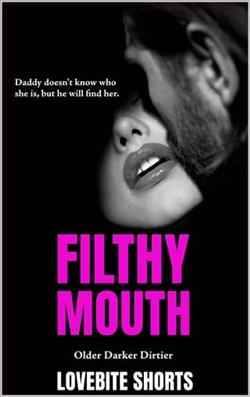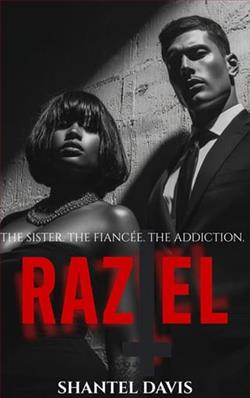Page 153 of Good Girl, Bad Blood
And worse, to make herself feel better about it all, she’d said it wasn’t really her and she’d never be that person again. That she was different now . . . good. That she’d almost lost herself last time and it wouldn’t happen again. But that wasn’t it, was it? She hadn’t almost lost herself, maybe she’d actually been meeting herself for the very first time. And she was tired of feeling guilty about it. Tired of feeling shame about who she was. She bet Max Hastings had never felt ashamed a day in his life.
‘You’re right,’ she said. And as she straightened up, untwisted, she realized that the pit in her stomach, the one that had been swallowing her from inside out, it was starting to go. Filling in until it was hardly there at all. ‘Maybe I don’t have to be good, or other people’s versions of good. And maybe I don’t have to be likeable.’ She turned to him, her movements quick and light despite her water-heavy clothes. ‘Fuck likeable. You know who’s likeable? People like Max Hastings who walk into a courtroom with fake glasses and charm their way out. I don’t want to be like that.’
‘So don’t,’ Charlie said. ‘And don’t give up because of him. Someone’s life might depend on you. And I know you can find him, find Jamie.’ He turned a smile to her. ‘Other people might not believe in you but, for what it’s worth, your neighbour from four doors down does.’
She felt it grow on her face: a smile. Small, flickering out after a moment, but it had been there. And it had been real. ‘Thank you, Charlie.’ She’d needed to hear that. All of it. Maybe she wouldn’t have listened, it if had come from anyone close to her. There’d been too much anger, too much guilt, too many voices. But she was listening now. ‘Thank you.’ She meant it. And the voice in her head thanked him too.
‘No problem.’
Pip stood up, out into the downpour, staring up at the moon, its light quivering through the sheets of rain. ‘I have to go and do something.’
Thirty-Three
Pip sat in her car, halfway down Tudor Lane. Not outside his house, just a little further up, so no one would see. Her thumbs on her phone, she played the audio clip one last time:
‘Max, at a calamity party in March 2012, did you drug and rape Becca Bell?’
‘What? No I fucking didn’t.’
‘MAX, do not lie to me or I swear to god I will ruin you! Did you put Rohypnol in Becca’s drink and have sex with her?’
‘Yes, but, like. . .it wasn’t rape. She didn’t say no.’
‘Because you drugged her, you vile rapist gargoyle. You have no idea what you’ve done.’
Her ears rang, trying to push away his voice and listen to her own. Good and bad didn’t matter here. There were only winners. And he only won if she let him. That was justice.
So, she did it.
She pressed the button, uploading the audio of that phone call to her website, reposting it on the podcast’s Twitter account. Alongside the post, she wrote:Max Hastings trial final update. I don’t care what the jury believes: he is guilty.
It was done, it was gone.
There was no going back now. This was her, and it was OK.
She dropped her phone on to the passenger seat and picked up the pot of paint she’d taken from the garage, tucking the brush into her back pocket. She opened the door, reaching back for the final item, the hammer from her dad’s toolkit, before stepping silently out of her car.
She walked up the road, passing one house, two, three, four, until she stopped, looking up at the Hastings family’s sprawling home, with its painted white front door. They were out, all of them, at their fancy dinner at the Savoy. And Pip was here, outside their empty house.
Up the drive, past the large oak tree, coming to a stop before the front door. She laid the paint pot on the ground, bending down to use the end of the hammer to pry open the lid. It was half full, the paint a dull green as she pulled out the brush and dipped it inside, spooling off the excess.
No going back. She took one breath and then stepped up, pressing the brush against the front door. She reached high, looping it up and down, crouching to pick up more paint when her lines ran dry.
The letters were shaky and dripping, spreading out from the door to the light-coloured bricks either side. She went back over the words, deeper and darker, and when she was done, she dropped the brush on the path, a small spatter of paint where it landed. She picked up the hammer, twirling it between her fingers, feeling its weight in her hands.
She crossed to the left side of the house, to the window there. She readied her arm and the hammer, held it back. Then she swung with full force into the window.
It shattered. A sprinkling of broken glass fell inside and out, like glitter, like rain, dusting the tops of her trainers. She tightened her grip on the hammer, glass crunching under her feet as she approached the next window. Pulled back and smashed it, the sound of the tinkling glass lost beneath the rain. And the next window. First swing, cracked. Second swing, exploded. Past the front door and the words she’d painted there, to the windows on the other side. One. Two. Three. Until all six windows at the front of the house were destroyed. Broken open. Exposed.
Pip’s breath was heavy in her chest now, right arm aching as she back-stepped down the drive. Her hair was matted and wet, whipping across her face as she looked up at the destruction. Her destruction.
And painted across the front, in the same forest-green shade as the Amobis’ new garden shed, were the words:
Rapist
I will get you
Pip read them, and read them again; looked around at what she’d done.















